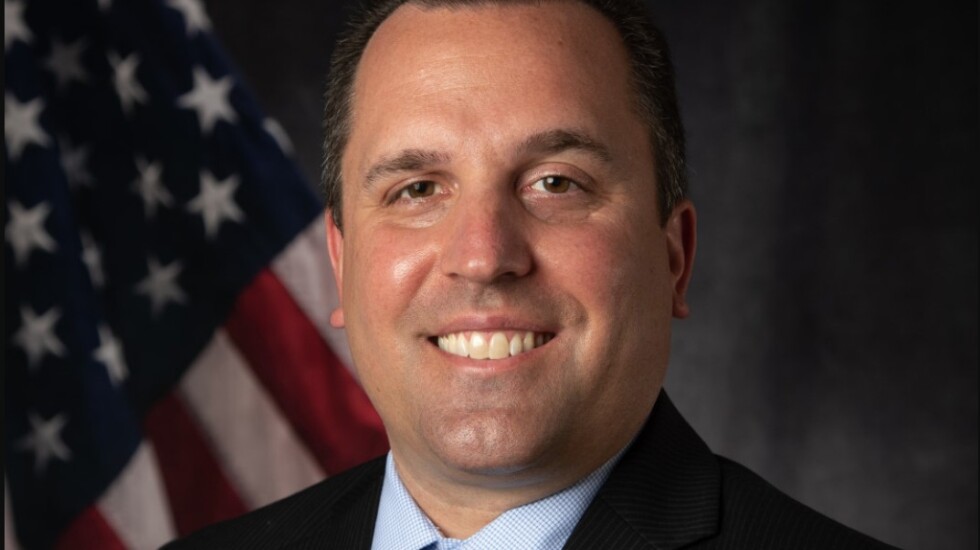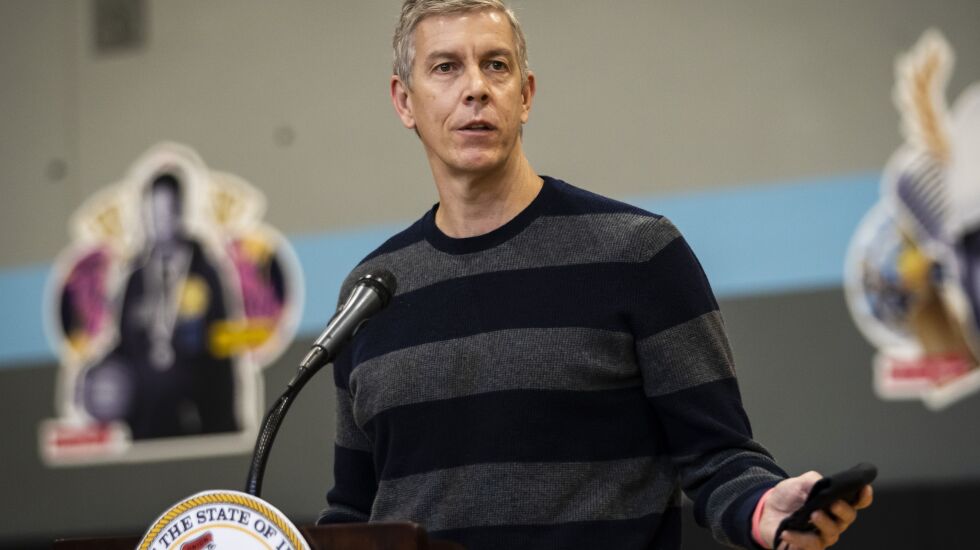
The official overseeing court-ordered reforms within the Chicago Police Department has been fired by Supt. David Brown after complaining about deep cuts to his office, the Sun-Times has learned.
Robert Boik, who has served in high-ranking civilian roles within the department since 2016, was dismissed after sending an email criticizing Brown’s decision to move 46 officers under Boik’s supervision to the Bureau of Patrol as part of a larger reorganization, according to a source with knowledge of the move.
Former city officials rushed to defend Boik — and question Brown’s decision. Arne Duncan, the former U.S. education secretary and CEO of Chicago Public Schools, insisted that Boik “was fired for blowing the whistle and telling the truth — that he has no support and that the administration is not serious about police reform.”
A former high-ranking official for Chicago Public Schools, Boik served as chief of staff to three police superintendents, including Brown. He was tapped in October 2020 as the executive director of the department’s Office of Constitutional Policing and Reform, which is charged with implementing a federal consent decree prompted by the police killing of 17-year-old Laquan McDonald.
In the email sent Monday, Boik noted that he had just recently proposed sending 23 officers to the police academy as “trainers” so the department would meet its “court-mandated obligation to provide 40 hours of in-service training to every sworn officer.”
“Rather than approving the request for the 23 individuals and putting us on course to complete our 40 hours of in-service training, the Office of Constitutional Policing and Reform was told to send 46 individuals back to patrol,” Boik complained.
Without those officers, there was “no way” the department could meet a March 3 deadline, he wrote.
“My request was not made lightly and was only due to what I believe is my professional obligation to meet the demands of the consent decree and the needs of our officers,” Boik stated to Brown.
Boik warned the move could have grave implications for the department’s compliance with the consent decree. “It is my view that the ramifications of this move more than outweigh the desire to send 46 officers back to patrol,” he wrote.
Boik’s termination was effective immediately Tuesday, a source said. He declined to comment.
Chicagoans ‘would rather see an officer deployed in the field than at a desk’
A police spokesperson would only confirm that Boik “is no longer a member of the Chicago Police Department.” Tina Skahill, a retired police commander who has most recently worked in Brown’s office as a civilian, was named as his replacement.
Boik played a pivotal role in the department notching its single-largest jump in compliance with the consent decree during the most recent reporting period. Still, in a report issued in April, the team tracking the city’s progress also raised serious concerns with staffing and retention, the department’s delayed foot pursuit policy and its flawed efforts to engage and build trust with residents, among other things.
A spokeswoman for Maggie Hickey, the court-appointed monitor leading that team, declined to comment.
When Brown was appointed superintendent in April 2020, Mayor Lori Lightfoot lauded his previous stint as chief of the Dallas Police Department.
“He became nationally recognized for his reform efforts to increase transparency, accountability and training for officers, as well as implement community policing initiatives that led the city to 50-year lows in violent crime,” Lightfoot said in a statement.
In Chicago, however, Brown’s tenure has been marked by a historic spike in shootings and homicides last year, and stiff criticism from within the ranks. Staffing woes and the department’s practice of routinely cancelling officers’ days off have remained sticking points.
When Brown took over from acting Supt. Charlie Beck, he scrapped Beck’s strategy of bolstering the number of patrol and transit officers in favor of building up citywide units.
Now, with next year’s mayoral election looming, Brown has reversed course. During a news conference on Monday, Brown acknowledged the department is “constantly shifting resources in this department as we see our strategies working.”
He said the department has singled out the CTA and the downtown police districts, where violent crime has spiked this year, but he noted that districts across the city “all need more resources.”
“The average resident would rather see an officer deployed in the field than at a desk if we can still make it work. ... We are deploying resources from the non-patrol bureaus so that we can have an increased presence on our CTA and other areas in the city with demand for it,” he said.
‘It’s a big loss for CPD’
Brown’s decision to fire Boik after he criticized that plan drew almost immediate pushback from a list of former high-ranking city employees.
Susan Lee, Lightfoot’s former deputy mayor of public safety, scoffed at his firing, which she said was “unprecedented.”
“Bob Boik is probably the person who has led the woefully understaffed reform team to give us any kind of progress we have had on the consent and other reform measures,” Lee said. “To summarily fire him on a legitimate concern about lack of resources and personnel to fulfill a court-mandated obligation, to me is callous and demonstrates a complete disregard for the difficult journey that reform requires.”
She added: “This feels like a devastating loss, and I’m not sure what the future holds.”
Duncan, who co-founded Chicago CRED, an anti-violence group that Lee also works for, said the level of trust between the police department and the community “is already far too low and losing [Boik] is a big step in the wrong direction.”

“That is dangerous for our city, for the community and for our police officers,” he added.
Beck said Boik’s exit will be a serious setback in the drive to reach the level of compliance needed to get out from under the costs and constraints of the consent decree.
“It’s a big loss for CPD,” he said. “Their goal of reaching compliance, in my estimation, will be much more difficult without Bob.”
Maurice Classen, the police department’s former director of strategy and Lightfoot’s first chief of staff, echoed Beck’s sentiment while noting that Boik’s career has been typified by “selflessness [and] professionalism.”
“His departure from CPD is a troubling development for the future of the department and constitutional policing in Chicago,” he said. “I’m sure Bob will go on to do tremendous things in other places,” he added. “But where CPD goes from here is an open question.”







